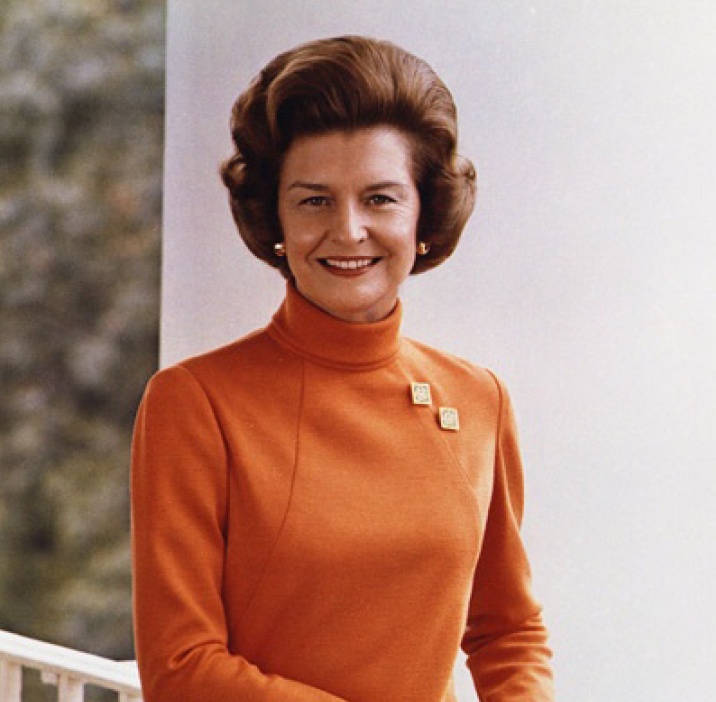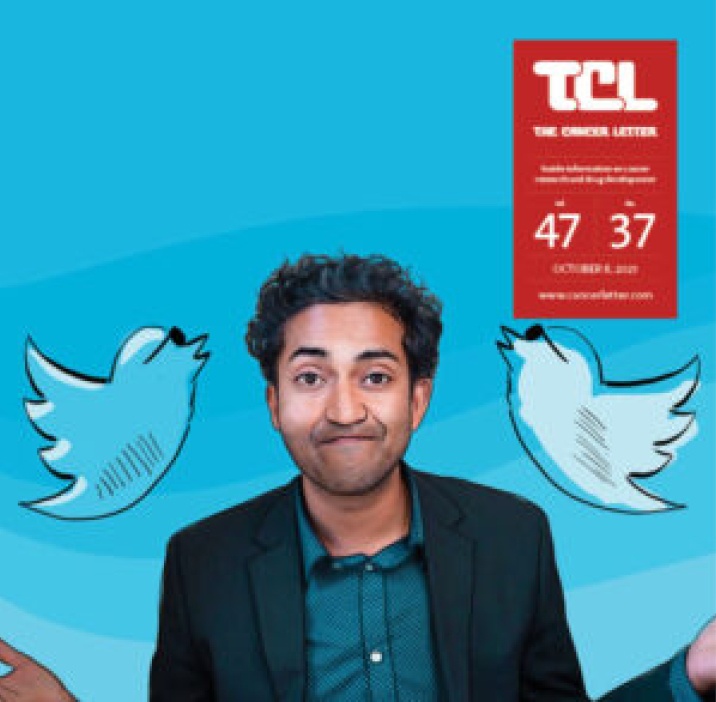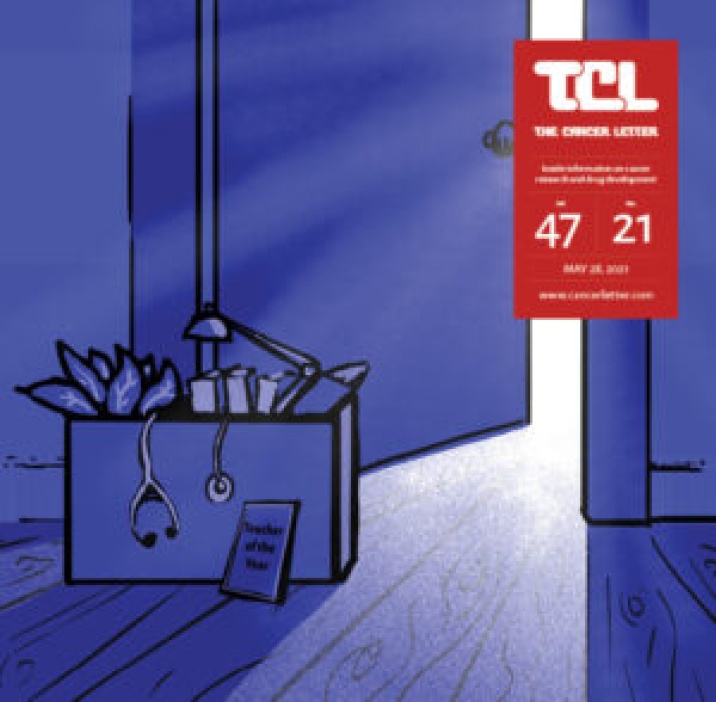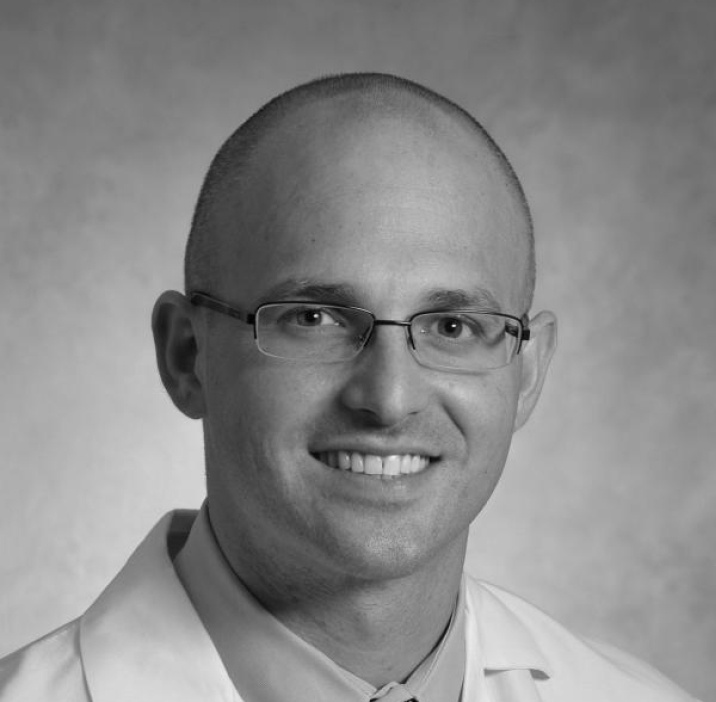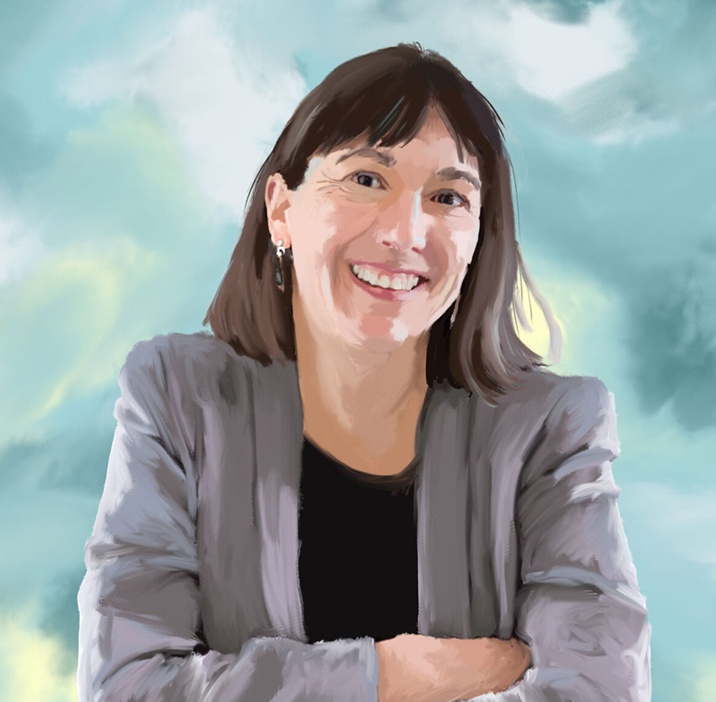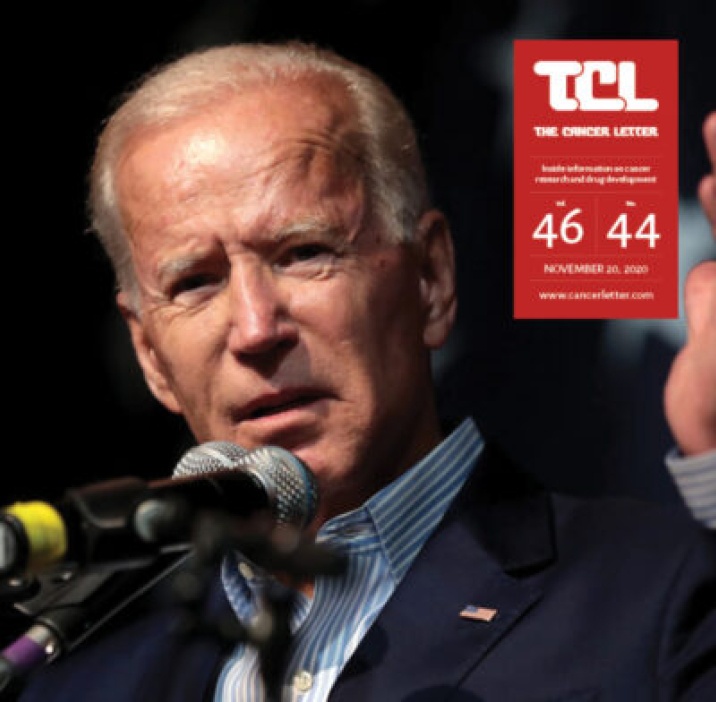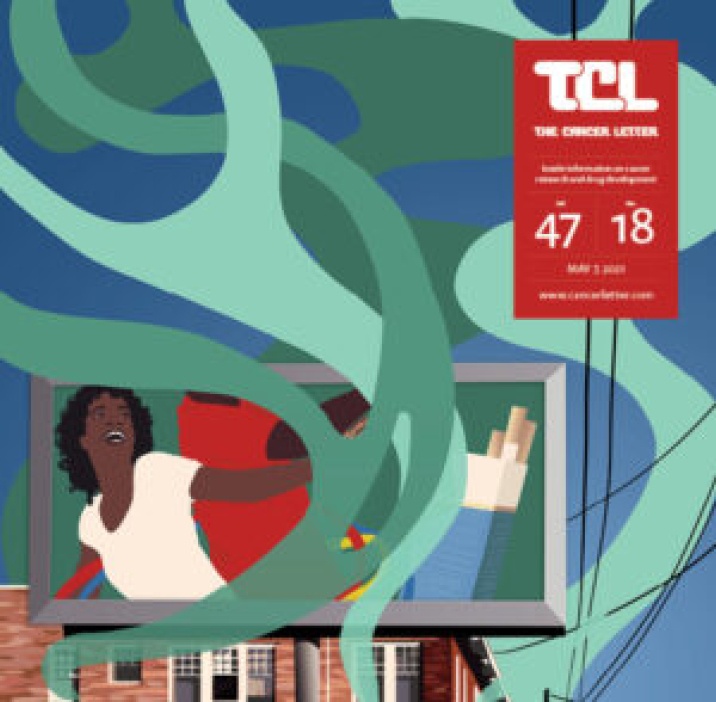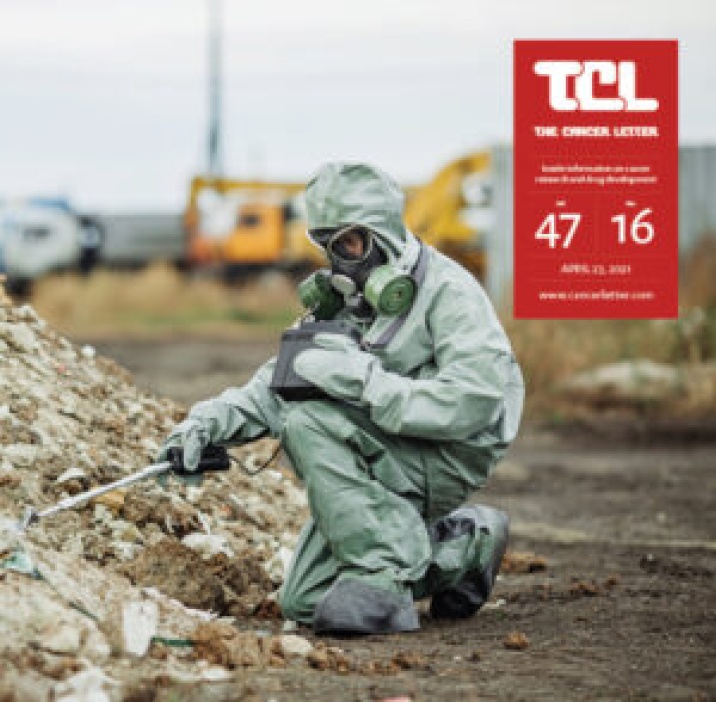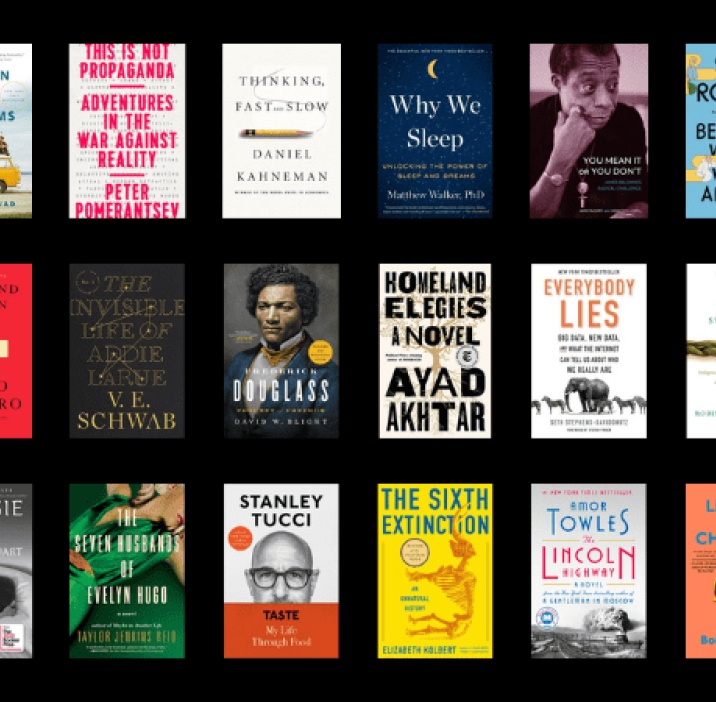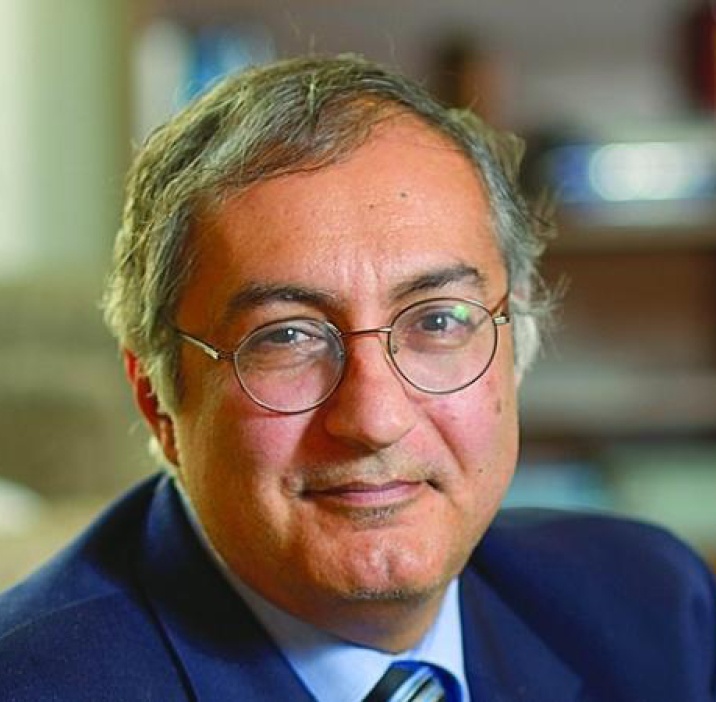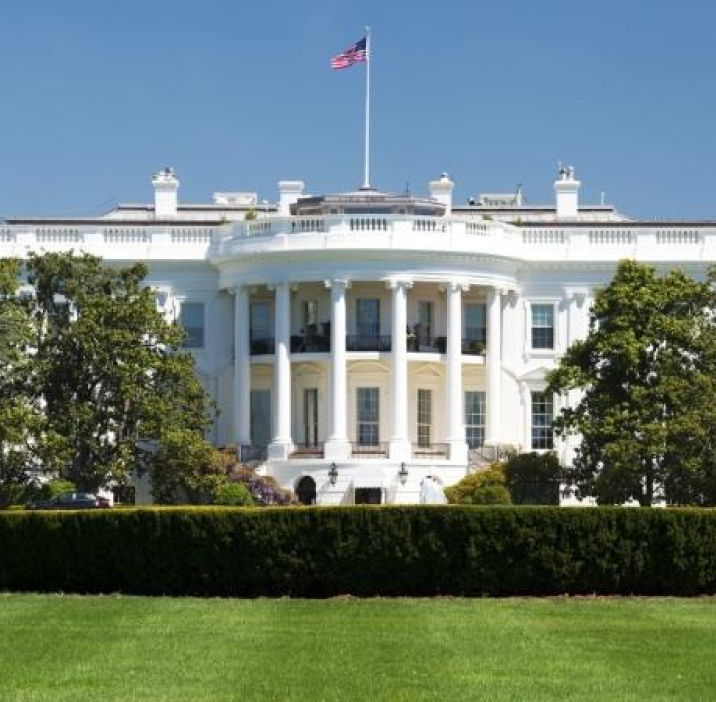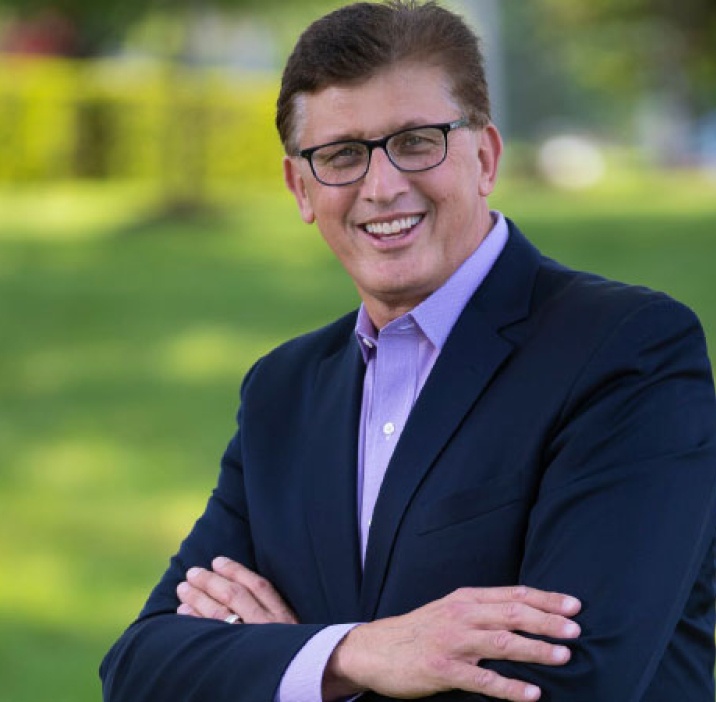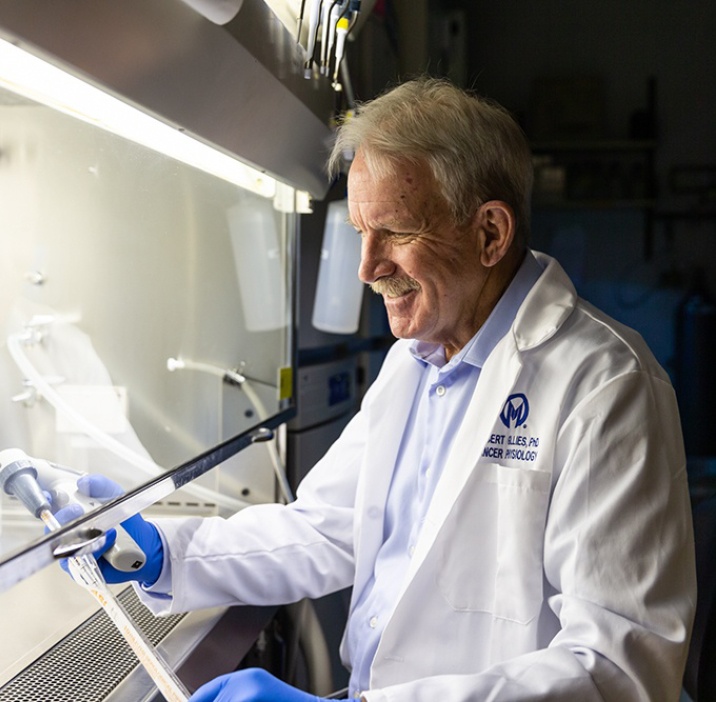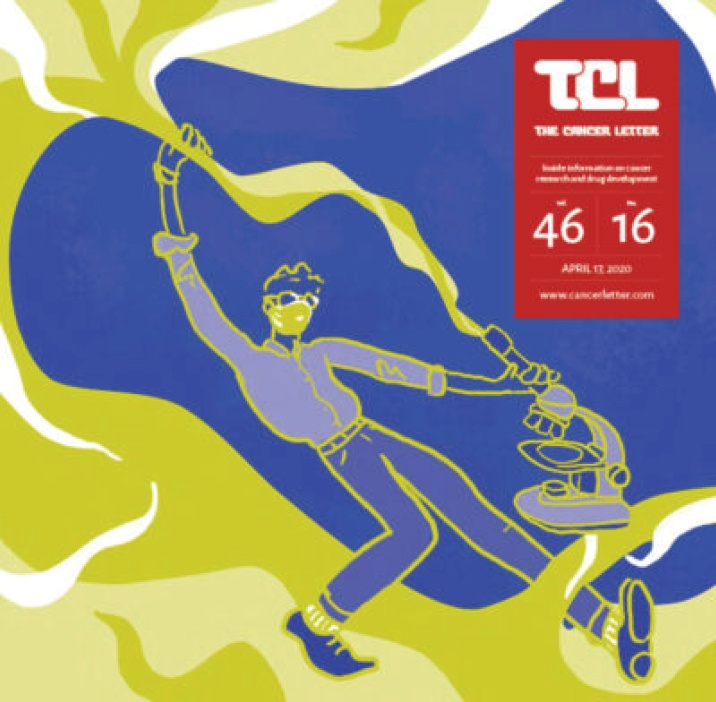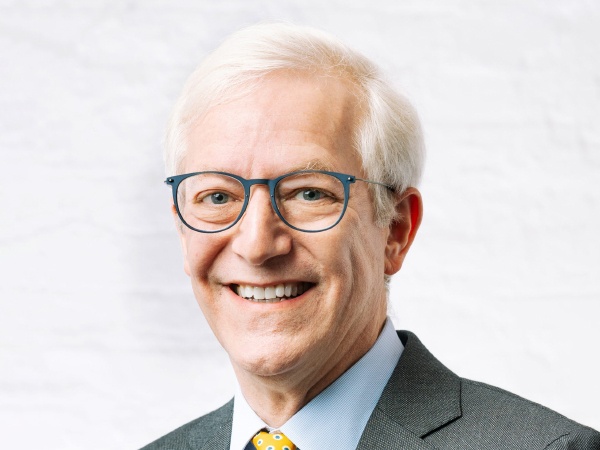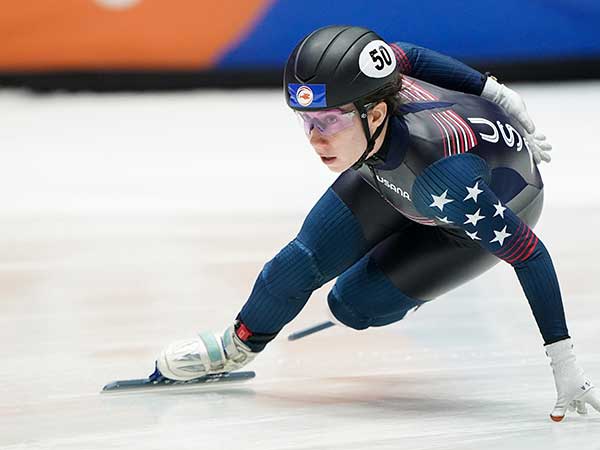2022 was the year to try to return to normal—or at least an approximation thereof.
The oncology field rallied back from isolation imposed by COVID-19, returning to in-person events. #MyFirstASCO, an initiative of the Cancer History Project, showed how much in-person events mean to us, documenting the experiences of people who have been attending the annual meeting of the American Society of Clinical Oncology as early as 1965 (The Cancer Letter, June 3, 2022).
Our reactions to historic calamities revealed who we are. As bombs fell on Ukraine, international groups worked together to help cancer patients, doctors, and refugees in that country (The Cancer Letter, March 4, 2022).
When the Supreme Court overturned Roe v. Wade in June, oncologists told The Cancer Letter about the dangers the decision posed (The Cancer Letter, July 1, 2022).
There were many firsts. President Biden’s appointee Monica Bertagnolli became the first woman and the first cooperative group chair to run NCI (The Cancer Letter, April 4, July 21, 2022).
Some stories are mainstays at The Cancer Letter, among them award-winning investigations, practice-shaping editorials, the yearly reading issue—and, of course, the occasional scandal.
Other stories take us by surprise: The second most-read story of the year is a brief historical article about Betty Ford and a 1974 NCI press conference that erupted with tabloid coverage after her mastectomy (The Cancer Letter, June 25, 2021). The Emmy-nominated seriesThe First Lady is the most likely reason this story climbed to the top of the list.
As we ring in the New Year, we invite you to revisit some of our most-read stories of 2022. This top-25 list is compiled based on The Cancer Letter‘s web analytics:
1
Wake Forest’s entire EAB resigns in protest as director Boris Pasche is fired
All 15 members of the External Advisory Board of the Wake Forest Baptist Comprehensive Cancer Center resigned, stating that they are also withdrawing their “endorsement for submission of the competitive renewal of the Cancer Center Support Grant.”
The Feb. 18 letter of resignation was signed by the EAB Chair Gerold Bepler, president of the Barbara Ann Karmanos Cancer Institute, on his own behalf and on behalf of all members of the committee.
The letter of resignation, which was obtained by The Cancer Letter, states that during the competitive renewal process, Wake Forest leadership gave an endorsement of the center’s director Boris Pasche.
2
Betty Ford and the press conference that changed oncology
An NCI press conference is rarely a tabloid affair—except on Sept. 30, 1974. What was anticipated to be a dry occasion shifted when Betty Ford, wife of President Gerald Ford, underwent a radical mastectomy Sept. 28.
The Cancer Letter was there: “Breast Cancer Report To The Profession Suddenly Is a Report To The Nation; Treatment Progress Noted,” was the Oct. 7, 1974 issue’s lead story.
Nathaniel Berlin, then director of NCI’s Division of Biology & Diagnosis and chairman of the Breast Cancer Task Force, had been concerned the breast cancer report would receive limited public attention. Instead, he got a media circus—leading to fears of publishing the findings prematurely.
3
Did Vinay Prasad need to mention the Nazis to make a point on the U.S. pandemic response?
Vinay Prasad might well have made his contrarian points without invoking the specter of the Third Reich. He didn’t have to go there—but he did. Voluntarily.
Prasad, an oncologist and associate professor in the Department of Epidemiology and Biostatistics at UCSF, likes a good Twitter fight. He has incited brawls over FDA’s accelerated approval of cancer drugs, efficacy of checkpoint inhibitors, usefulness of next-gen sequencing, and—in recent months—the restrictions aimed at curbing the spread of COVID-19.
In an Oct. 2 Substack blog post, Prasad argues that public health measures may have laid the groundwork for the onset of fascism in the U.S.
The comparison set off a deluge of Twitter controversy, including accusations of anti-Semitism and ignorance of the circumstances that led to the rise of German fascism.
4
Prominent GI oncologist Axel Grothey was forced out of Mayo Clinic for unethical sexual relationships with women he mentored
The aftermath of sexual misconduct at premier medical institutions rarely leaves visible traces: HR is brought in, confidentiality invoked, deals made. The case of Axel Grothey’s exit from Mayo Clinic is a notable exception.
Last year, the prominent gastrointestinal oncologist was reprimanded by medical licensure boards in three states for engaging in unethical sexual relationships with an oncology fellow and a faculty colleague at Mayo Clinic Rochester, his longtime place of employment.
Three reprimands notwithstanding, Grothey has kept his appointment as co-chair of the NCI National Clinical Trials Network’s Gastrointestinal Steering Committee, an influential group that reviews ideas for clinical trials and helps determine the priorities in federally funded clinical research in GI oncology.
Editor’s note: Additional articles in this award-winning series are available here.
5
UChicago oncologist settles SEC charges, pleads not guilty to criminal insider trading
In the morning of Nov. 10, 2020, Daniel V.T. Catenacci, director of the GI oncology program at the University of Chicago, did some trading, court documents say.
Catenacci bought 8,743 shares of Five Prime Therapeutics Inc., knowing that the company was about to release positive results from a phase II study of bemarituzumab, a monoclonal antibody for gastric cancer, civil and criminal complaints say.
A day later, Catenacci, who was the lead clinical investigator on the study, sold those shares for a profit of more than $134,000, court documents say.
6
Monica Bertagnolli, first woman and first clinical trials group chair to direct the National Cancer Institute
Monica M. Bertagnolli, a professor of surgery at Harvard Medical School, stands poised to become the first woman and the first chair of a clinical trials cooperative group to be named director of the National Cancer Institute.
President Joe Biden is expected to name Bertagnolli, who is now chief of the Division of Surgical Oncology at Brigham and Women’s Hospital and Dana-Farber Cancer Institute, to the position of institute director.
The rollout of Bertagnolli’s appointment didn’t go smoothly, as news leaked out on Twitter and in the press, first appearing in STAT, in the morning of July 21, shortly after the White House announced that the president had contracted COVID-19.
Bertagnolli, 63, will be the 16th NCI director since the institute’s founding in 1937 and the tenth since the National Cancer Act elevated the job to the status of a presidential appointment. The NCI director is presidentially appointed but is not subject to approval by the Senate.
7
Trump et al. are wrong: Biden Cancer Initiative is not to be confused with the Beau Biden Cancer Moonshot
On Nov. 15, shortly after midnight, President Donald J. Trump tweeted a link to a New York Post headline:
“Tax filings reveal Biden cancer charity spent millions on salaries, zero on research”
Waking up later that morning, Fox News host Laura Ingraham and former Trump campaign manager Corey Lewandowski, gleefully lent their voices to the now-familiar cacophony of disinformation. A day later, Fox News host Sean Hannity joined their chorus.
For those just tuning in, the president was retweeting a story about the Biden Cancer Initiative, a small organization that is not to be confused with the Beau Biden Cancer Moonshot, a bipartisan effort to increase funding for cancer research.
8
“This is not about protecting life”: Supreme Court overturn of Roe v. Wade threatens lives of cancer patients, doctors
When Jill Hawkins realized that she was six weeks pregnant this March, her oncologist gave her two options.
One was to continue with the pregnancy and switch to interferon, a treatment that would be safer for the fetus, but more toxic to her. Alternatively, she could get an abortion.
Hawkins was diagnosed with chronic myeloid leukemia in August 2021 and was taking the drug Bosulif (bosutinib), a tyrosine kinase inhibitor not recommended for use during any part of pregnancy.
“At the end of the day, for me, I can handle the risk to me, or the birth defect. I don’t think I can handle both. I don’t think I can handle the uncertainty and the fear around all of it. I need to feel good about one thing. In this situation, I didn’t feel good about any of it,” Hawkins, a clinical social worker and therapist based in New York City, said to The Cancer Letter. “It’s not a good idea for my health. Do I want to let go of this pregnancy and be sad and grieve, or do I want to keep it and feel anxious and fearful of losing my life?”
Related:
- Oncology and healthcare groups respond to the end of Roe v. Wade (The Cancer Letter, July 1, 2022)
- Virginia gynecologic oncologists: “Pro-life” is not pro-life at all (The Cancer Letter, July 1, 2022)
- Cancer care must remain in the hands of doctors and their patients (The Cancer Letter, July 1, 2022)
- Harvard Law’s I. Glenn Cohen: To provide good care, doctors will run afoul of criminal law in some states as Roe v. Wade ends (The Cancer Letter, July 1, 2022)
- Cancer patients and their families will feel the impact of SCOTUS abortion ruling (The Cancer Letter, July 1, 2022)
9
Ned Sharpless steps down as NCI director
After nearly five years in the federal government—at both NCI and FDA—Ned Sharpless is stepping down from his position as NCI director.
“I feel like it’s a good time from a government calendar point of view to step aside and let someone else help lead the president’s new initiatives in this area,” Sharpless said to The Cancer Letter. “And I feel like it’s a good time for me personally, so it just felt like the right time.”
Sharpless was sworn in as the 15th director of NCI on Oct. 17, 2017, before becoming acting FDA commissioner for seven months in 2019. Prior to coming to NCI, he was director of UNC Lineberger Comprehensive Cancer Center for four years (The Cancer Letter, June 16, 2017).
Sharpless is one of two directors to have served as NCI director and head of FDA, and the only one to resume NCI directorship after leaving FDA (The Cancer Letter, Dec. 6, 2019; Nov. 8, 2019).
10
As bombs fall, international efforts are ramping up to help Ukraine’s cancer patients, doctors, and refugees
On March 2, a bus filled with Ukrainian children was getting ready to leave Odesa for the border of Moldova, Ukraine’s closest neighbor.
As the port city on the Black Sea braced for an onslaught from Russian tanks and artillery, St. Jude Children’s Research Hospital was working with allies on the ground to secure transportation and evacuate children with cancer. The kids were ready to go.
Then bombs rained down on Odesa.
“They could not move,” Carlos Rodriguez-Galindo, director of St. Jude Global, chair of the Department of Global Pediatric Medicine, and executive vice president at St. Jude Children’s Research Hospital, said to The Cancer Letter.
“These kids will probably never be able to get out of Odesa.”
Related:
- Three weeks in Mariupol; How Dr. Hanych kept his cancer patients alive amid Russia’s attack (The Cancer Letter, Aug. 5, 2022)
- To help Ukraine’s cancer patients, a coalition of U.S., European cancer groups aims to provide a coordinated response (The Cancer Letter, March, 11, 2022)
11
The unKOOL, unfiltered history of menthol cigarettes
Quick, what color is menthol?
No, it’s not green. That’s the color of the KOOL, Newport, or Salem cigarette pack. Get it? Green is cool. Red is hot.
Menthol, a component of peppermint oil, is a colorless topical pain reliever like Novocain that the dentist uses to numb a tooth.
The idea of adding menthol to reduce smoking’s harshness on the throat came to Lloyd “Spud” Hughes in the 1920s, after he’d stored his cigarettes in an old tin of menthol crystals that his mother insisted that he inhale for his asthma.
He patented the process in 1924, and three years later, the Axton-Fisher Tobacco Company acquired the patent and began manufacturing “Spud Menthol Cooled Cigarettes.”
Today, as the Biden administration targets mentholated cigarettes, it behooves us to review the history of the tobacco industry’s marketing campaigns that target Black Americans.
12
Chernobyl: a 35 year follow up on long-term health effects
In the early morning of April 30, 35 years ago, I was awakened by a call from Anatoly Dobrynin, a long-time Soviet Ambassador to the United States.
He said General Secretary Mikhail Gorbachev wanted me to come to the Soviet Union to help treat victims of the Chernobyl nuclear power facility accident. I had cabled Gorbachev a few days earlier, offering my assistance.
13
What are you reading in 2022?
Is 2022 the year of thrillers? Statistics? Thrillers about statistics?
For the third year in a row, The Cancer Letter has asked a diverse panel of clinicians, basic scientists, early-career faculty, and regulators to tell us what they are reading.
14
#MyFirstASCO: Memories from 57 years of annual meetings
The ASCO annual meeting began in 1964 as a group of 51 physicians finalizing the bylaws of the organization—and has since turned into a much-anticipated global event that brings together 35,000 to 40,000 people across all areas of oncology.
“Big trees begin as tiny acorns,” said John Laszlo, an early childhood leukemia researcher, professor emeritus at Duke University Medical Center, and a retired national vice president for research at the American Cancer Society.
Laszlo attended one of the first ASCO annual meetings in the 1960s. The first scientific meeting was in 1965, and according to ASCO Connection, that gathering included a 1.5 hour-long program with three presentations on leukemia and multiple myeloma.
“No one predicted that a small group of oncologists could spark a movement the size of the current membership of ASCO,” Laszlo said.
The Cancer History Project asked people who have played a role in oncology—fellows, cancer center directors, lawyers, pharmaceutical executives, CEOs, past ASCO presidents, and one journalist—to share their memories from their first ever annual meeting experience.
Related:
- ASCO annual meetings through the years: A timeline of The Cancer Letter’s coverage (The Cancer Letter, June 3, 2022)
15
All colorectal cancer patients require germline testing at diagnosis and somatic testing at advanced disease diagnosis
Technological advances are transforming our understanding of cancer, accelerating the evolution of new treatment approaches. In the past decades, researchers deploying new techniques for analyzing DNA have extended our knowledge of inherited genetic abnormalities that can predispose a person to develop colorectal and other cancers.
Those insights have led to specific strategies to manage and minimize risk for affected individuals and their family members. Today, these insights permit us to decipher the heterogeneity of colorectal and other cancers based upon the identification of the genetic abnormalities that drive the development and progression of an individual patient’s cancer.
16
Wafik El-Deiry: Cancer research beset by a Gordian Knot of problems
It’s been a hot summer all over the world, but our work doesn’t stop as our problems need solutions.
There’s a war in Ukraine, we are continuing this summer to work with colleagues in the U.S. from Ukraine to help Ukrainian physicians and scientists find opportunities, and we’re emerging out of a COVID pandemic that may always be with us, according to some sources.
Academic oncology forges ahead with numerous challenges, but a new day lies ahead.
There are champions for the importance of cancer research and care in the White House in President Joe Biden and First Lady Dr. Jill Biden, a respected new leader Dr. Monica Bertagnolli on the way to direct the NCI, a re-energized ACS with Dr. Karen Knudsen, important cancer research and advocacy initiatives by AACR through amazing leadership by Drs. Margaret Foti, David Tuveson, Lisa Coussens, Phil Greenberg, and others, and ASCO’s role in education, invigorating the oncology workforce, and bringing forward practice-changing advances.
I’ll get right to the point, as what I’m going to say won’t surprise many, but the problems just aren’t going away. This makes me ask whether the problems are bigger than all of us combined?
17
Biden’s FY23 proposal cuts NCI funds by $199M, while boosting ARPA-H by $4B
In a move that appears to prioritize biomedical engineering over cancer research, President Joe Biden’s proposal for fiscal year 2023 cuts NCI funding by $199 million, a 2.9% cut from the current year’s level.
At the same time, the White House proposes adding $4 billion to the Advanced Research Projects Agency for Health (ARPA-H), Biden’s agency for high-risk, high-reward biomedical research—which he touts as a key element of his goal to “end cancer as we know it.”
This boost in funding for ARPA-H would create a tradeoff, potentially jeopardizing progress within NIH and its institutes, said Ellie Dehoney, vice president of policy and advocacy at Research!America.
18
Flatiron CEO Carolyn Starrett: We’re reimagining the infrastructure of cancer care, and we’re going global
As real-world evidence becomes ever more essential, a cancer health technology company that played a key role in modernizing 21st-century health data is capitalizing on its accomplishments in the U.S.—and moving into international markets to meet the growing demand for actionable data.
Founded in 2012, Flatiron Health, now in its 10th year, is entering the third phase of its evolution as a pioneer of real-world data and machine learning applications in cancer informatics.
Carolyn Starrett, a long-time business operations and strategic development executive at the company, was named CEO in April 2021, after Flatiron co-founders Nat Turner and Zach Weinberg stepped down from management.
“We had our startup phase and days early on. We then had an acquisition and a period of learning what it meant to exist post-acquisition,” Starrett said to The Cancer Letter. “Now, we’re internally talking about Flatiron 3.0. And I think 3.0 is an opportunity to really think about how we further advance and realize the mission that we set out to achieve 10 years ago.”
19
John Mark Cleland, first man to be cured of metastatic testicular cancer, dies at 71
John Mark Cleland died peacefully on Feb. 7, 2022, in Indianapolis.
Some people reading this headline will have little or no idea who John Cleland was. However, if you are a medical or urological oncologist, you should. John Cleland was the first man whose metastatic testicular cancer was cured with combination chemotherapy containing cisplatin.
His survival, 47 years ago, which occurred soon after the breakthrough reports of impressive cure rates of certain leukemias and Hodgkins and non-Hodgkins lymphomas, ushered in an age of great excitement in the treatment of cancer.
20
Gynecology’s deadly surprise: Cancers are frequently missed prior to routine procedures
As they reach for surgical tools, gynecologists vastly underestimate the probability that their patients have undiagnosed uterine cancers, a study by Yale University researchers found.
Their paper, published in Obstetrics & Gynecology last month, is immediately relevant in the clinic, because a suspicion that cancer may be present dictates the choice of surgical techniques employed in gynecological procedures that are performed in about 650,000 women every year in the U.S.
21
Northwell’s Barakat on the omicron wave: Hospitalizations spike, but not as many need ICU
After having treated over 200,000 COVID cases over two years—more than any health system in the U.S.—Northwell Health once again finds itself in the center of the storm as cases of the omicron variant escalate in New York State.
How does omicron differ from previous variants? How has preparation for its onslaught been informed by the past two years of the pandemic? How will cancer services be affected? The Cancer Letter posed these questions to Richard Barakat, physician-in-chief and director of Northwell Health Cancer Institute and the Edward and Carol Miller Distinguished Chair in Cancer.
22
Robert Stone: How City of Hope will go national through acquisition of Cancer Treatment Centers of America
The acquisition of Cancer Treatment Centers of America will allow City of Hope to build a national network of cancer centers that is fundamentally different from those of other cancer centers.
“This will create a one-of-a-kind national cancer-focused system. I’m not aware of anybody else doing that,” Robert Stone, president and CEO of City of Hope, said to The Cancer Letter.
The two organizations are very different. City of Hope is an NCI-designated comprehensive cancer center based in Southern California and has founded a subsidiary, AccessHope, to provide remote cancer expertise to employers and their health care affiliates. CTCA has been a for-profit, family-owned business that operates cancer centers in Chicago, Atlanta, and Phoenix.
23
Moffitt’s Robert Gillies, “father of radiomics,” dies at 69
Moffitt Cancer Center and the global research community have lost a great leader, scientist, and collaborator. Dr. Robert J. Gillies died June 7 after an extended illness. His recruitment in 2008, and the contributions to science he made over the ensuing 14 years, elevated Moffitt’s scientific stature. He was 69.
“It is indeed rare for a single investigator to have major impacts on such a broad swath of disciplines. Bob did just that, where he was the Father of Radiomics, a leader in cancer metabolism and evolution, and an innovator in drug development and radiopharmaceuticals. He was indeed a jack-of-all-cancer-trades, and we are unlikely to find his like again. We were blessed by his presence and are inspired by his legacy,” said Moffitt Center Director Dr. John Cleveland.
24
Lowy: “Our patients are counting on us, and we must not let them down” NCI Frederick lab takes aim at Covid-19
NCI’s Frederick National Laboratory for Cancer Research has launched three initiatives focused on SARS-CoV-2:
- Identifying genetic determinants of SARS-CoV-2 susceptibility and outcomes at the Cancer Genomics Research Laboratory,
- Testing and validating serologic assays for SARS-CoV-2 in the Serology laboratory of the Vaccine, Immunity, and Cancer Program, and
- High-throughput screening for small molecule inhibitors of SARS-CoV-2 proteins, with technology developed by the RAS Initiative.
“We think that it was built for a situation like this, where speed, flexibility, and expertise are critical to addressing such a deadly public health threat,” Douglas Lowy, NCI principal deputy director, said April 9 in an emergency virtual meeting of the NCI Board of Scientific Advisors and the National Cancer Advisory Board.
25
White House’s Danielle Carnival: I’m moving the Cancer Moonshot forward with an all-of-government approach
Changes at Mission Control notwithstanding, the new Cancer Moonshot is ready for liftoff, says Danielle Carnival, coordinator of the White House cancer initiative.
“I hope that you and your readers are comforted and reassured as to where the president’s priorities are,” said Carnival, senior advisor to the director of the White House Office of Science and Technology Policy. “And with new leadership to come, I know that they will pick right up and continue to move that forward.”
Carnival spoke with The Cancer Letter Feb. 15, one day before President Joe Biden appointed Alondra Nelson and Francis Collins to step in as leaders of the White House science agenda, replacing Eric Lander, who stepped down after findings that he mistreated his staff members.



